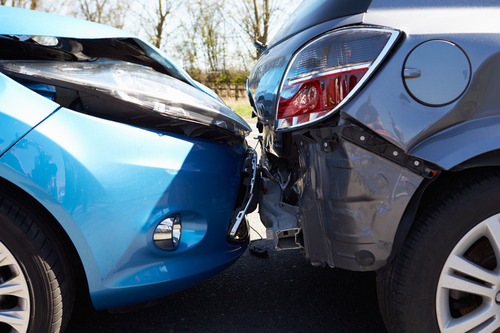At Mogy Law, we’re committed to helping individuals in Raleigh and surrounding areas navigate the complexities of personal injury claims, including car accidents. Our experienced team is dedicated to providing personalized legal representation, ensuring that your rights are protected, and guiding you through the claims process every step of the way. We understand the challenges that come with accidents, from dealing with insurance companies to recovering medical expenses, and we’re here to fight for the compensation you deserve.
After a car accident, one of the most crucial decisions you’ll need to make is when to make an insurance claim. Timing can have a significant impact on the outcome of your claim and the compensation you receive. Whether it’s deciding whether to contact your own insurance company, submitting the necessary documents, or understanding the claims process, navigating the complexities of filing an auto insurance claim can be overwhelming.
In this blog, we’ll guide you through the critical steps of filing a car insurance claim after an accident and explain why working with an experienced Raleigh car accident attorney can help you navigate the complexities of the claims process and maximize your compensation.
Immediate Steps After a Car Accident
Car accidents happen without warning. Taking the right steps after a crash can protect your safety, strengthen your insurance claim, and help with legal or financial recovery.
Ensure Safety and Call Authorities
Move your own car to a safe location if possible. Turn on hazard lights to alert other drivers. Check yourself and other drivers for injuries. Call 911 to report the accident, especially if there are injuries or significant damage. A police report provides an official record, which can be useful for filing claims.
Gather Insurance and Driver Information
Exchange insurance information with the other driver. Collect names, contact details, and driver’s license numbers from all parties involved. Take photos of vehicle damage, road conditions, and any property damage. These details help when working with your insurance provider or claims adjuster.
Seek Medical Attention
Even if you feel fine, some injuries appear later. See a doctor to document any potential medical expenses. If you plan to file a car insurance claim, medical records can support your case. Insurance companies may require proof of injury for claim payment.
Notify Your Insurance Company
Call your insurance agent or use an online form to start the insurance claim process. Provide details from the police report, accident photos, and witness statements. Reporting the accident quickly helps with claim approval and speeds up vehicle repairs.
Document Everything for the Claims Process
Keep copies of all receipts related to the accident, including auto repair costs, medical bills, and rental car expenses. If the other driver’s insurance provider disputes fault, your records can support your claim. If necessary, seek legal advice to ensure fair compensation.
When to Make an Insurance Claim
Filing a car insurance claim is not always necessary, but in many cases, it helps cover repair costs, medical expenses, and liability. Knowing when to make an insurance claim can prevent financial loss and legal complications.
If You Are at Fault
If you caused the accident, your liability coverage will pay for property damage and medical bills for the other driver. If your own car needs repairs, collision coverage will help, but you must pay the deductible first. Filing claims makes sense if the damage is costly or the other driver plans to take legal action.
If the Other Driver Is at Fault
If another driver caused the accident, you can file an insurance claim with their insurance provider. Their insurance company should cover vehicle repairs, medical expenses, and other losses. If they are uninsured, your own insurance policy may provide coverage under uninsured motorist protection.
If There Is Significant Vehicle Damage
If your car has serious damage and repair costs exceed your deductible, filing a claim makes sense. If the actual cash value of your car is lower than the repair cost, the insurance company may declare it a total loss. In this case, they will pay based on the auto insurance policy terms.
If Someone Is Injured
If anyone involved needs medical treatment, filing a claim is important. Medical bills can add up quickly, and your insurance policy may cover costs. If the accident leads to long-term injuries, legal action may be necessary to secure fair compensation.
If You Have a Loan or Lease
Lenders and leasing companies often require full coverage insurance. If you have a financed or leased vehicle, you may be required to file a car insurance claim for any damage. Auto insurance policies linked to loans usually include collision coverage and comprehensive coverage.
When Filing a Claim Makes Sense
Filing an auto insurance claim is the best option when damages or injuries exceed what you can afford. If another driver is responsible, their insurance provider should cover your losses. If you are at fault, your car insurance policy can prevent higher out-of-pocket costs. Always consider your deductible, policy limits, and potential car insurance rate increases before making a decision.
When to Avoid Filing a Claim
Filing an auto insurance claim is not always the best choice. In some situations, handling repairs yourself can save money and prevent car insurance rate increases.
If the Repair Costs Are Less Than Your Deductible
If vehicle repairs cost less than your collision coverage or comprehensive coverage deductible, paying out of pocket is better. Your insurance provider will not cover expenses below the deductible, and filing a claim could raise your car insurance rates.
For Minor Accidents with No Injuries
A minor accident with no medical bills or property damage to someone else’s vehicle may not require an insurance claim. Small dents or scratches that cost little to fix may not be worth filing claims.
If You Can Settle Privately
If you caused minor vehicle damage to an other driver and they agree to a private payment, you might avoid insurance claim process hassles. However, get a written agreement to prevent future disputes.
If Filing a Claim Will Increase Your Rates
Repeated insurance claims can lead to higher car insurance rates. If the accident is small and no other driver is involved, consider paying for auto repairs yourself.
If Your Policy Does Not Cover the Damage
Some car insurance policies exclude certain damages. If your insurance coverage does not include aftermarket parts or specific types of damage, filing a claim may not help. Review your insurance policy before deciding.
When Avoiding a Claim Makes Sense
Avoid filing a car insurance claim if the damage is minor, repair costs are low, or the risk of insurance premium increases is high. Consider your deductible, claims history, and long-term costs before reporting an accident to your insurance company.
The Car Insurance Claims Process
Understanding the insurance claim process helps you file correctly and get the compensation you deserve. Following the right steps can speed up payments for vehicle repairs, medical expenses, and other losses.
Report the Accident to Your Insurance Provider
Contact your insurance company as soon as possible. Provide details about the accident, including the police report, location, time, and all parties involved. Some insurance providers allow you to file an online form to start the claims process.
Work with a Claims Adjuster
Once you file a claim, a claims adjuster will investigate. They will assess the vehicle damage, review repair estimates, and determine fault. The adjuster may also interview witnesses and examine medical records if there are medical bills involved.
Get a Repair Estimate
Your insurance company may recommend an auto repair shop, but you have the right to choose your own. Some auto insurance policies cover original equipment manufacturer (OEM) parts, while others may only cover aftermarket parts. Verify what your insurance coverage includes before approving repairs.
Receive Claim Payment
Once the insurance claim process is complete, your insurance provider will issue a claim payment based on policy terms. If your car insurance policy includes collision coverage, the payment will cover repair costs minus your deductible. If your car is totaled, the insurance company will pay the actual cash value of the vehicle.
Rental Car Coverage
If your auto insurance policy includes rental car reimbursement, your insurance provider will cover the cost while your own car is being repaired. Confirm daily limits and coverage duration with your insurance agent.
Track the Claim and Follow Up
Keep records of all insurance claim documents, receipts, and communications. If delays occur, follow up with your claims adjuster or seek legal advice. If your insurance company offers a low settlement, you may need a lawyer to ensure fair compensation.
Contact an Experienced Raleigh Car Accident Attorney Today!
If you’ve been involved in a car accident and need guidance on filing an insurance claim, don’t hesitate to reach out to our team at Mogy Law. Our experienced attorneys are here to help you navigate the claims process, protect your rights, and ensure you receive the compensation you deserve.
Contact us at (901) 443-9133 for a free case consultation today!






